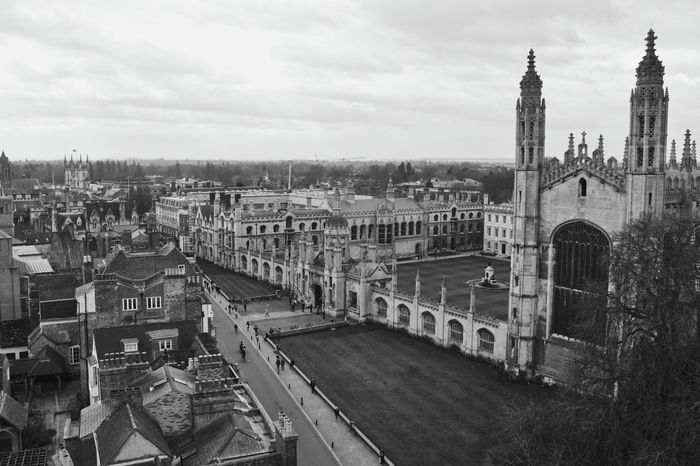Hundreds of elite private schools benefitted from ‘widening participation’ measures
An online school ran by Harrow and King Charles III’s school were among those flagged for ‘low participation in Oxbridge’.

Almost 300 private schools benefited from “widening participation” measures in the past 3 years, Varsity can exclusively reveal.
Freedom of information requests found that the University flagged at least 289 private schools for “low participation in Oxbridge” when assessing applications. This made up for 19% of applicants who received this consideration, despite only around 6% of students in the UK being privately educated.
Widening participation flags are designed to aid applicants “from the lowest socioeconomic groups” including “from the state sector” in the Cambridge application process. “Low participation in Oxbridge” flags are supposed to be used when a school has received fewer than 5 Oxbridge offers in the last 5 years.
Among the schools that benefited from these measures was an online school ran by Harrow, one of the UK’s most prestigious private schools. Gordonstoun School, the school King Charles III attended, was also flagged for ‘low participation in Oxbridge’.
Freedom of Information requests to Christ’s College also found multiple elite grammar schools had been awarded this flag despite a history of Oxbridge success. This included Pate’s Grammar School, which has received 60 Cambridge offers in the last 5 years and was ranked as the 4th best state school in the UK last year.
Thirty six schools which benefitted from these flags boast fees above £40,000. One of these, Stonar School, offers students the opportunity to loan a horse each term for an extra £1,260.
The University’s new Access and Participation Plan, which recently announced intentions to abolish state school targets, plans to place more emphasis on this flag to provide a “more nuanced” way of assessing applicants, Varsity understands.
The new access plan claims that it will focus on aiding “groups of students who are underrepresented at Cambridge” in the application process, and will utilise flags that reflect individual factors, such as socio-economic circumstances and disabilities than schooling statistics.
Elsie McDowell, president of the Class Act Campaign, slammed these findings as a “slap in the face” to applicants who have faced socioeconomic disadvantages. She claimed that “giving [flags] out to the UK’s most privileged students trivialises Cambridge’s entire attempt at widening access”.
Caredig ap Tomos, the Student Union’s Access, Education & Participation Officer, echoed these concerns, telling Varsity: “Information found in this freedom of information request is clear evidence that careful consideration needs to be given to what a metric shows about a student’s background and that no one metric can be relied on.”
When contacted for comment, a spokesperson for the University of Cambridge told Varsity: “All applicants to the University are considered holistically and no one piece of data is considered in isolation, in line with the Admissions Policy.”
“An applicant’s schooling is taken into account, particularly if they come from a school which has not seen many applications to Cambridge, alongside other socio-economic factors to indicate disadvantage of opportunity. The new APP is being drafted now in line with OfS guidelines and is subject to further discussion around the collegiate University. It will continue to reflect the University’s commitment to widening participation” they continued.
Christ’s College has been contacted for comment.
 Sport / The diary of a Bumps rower24 April 2024
Sport / The diary of a Bumps rower24 April 2024 News / Emma May Ball U-turns on ‘accessible’ half-shift staffing28 April 2024
News / Emma May Ball U-turns on ‘accessible’ half-shift staffing28 April 2024 News / Rosie Freeman resigns as SU Women’s Officer29 April 2024
News / Rosie Freeman resigns as SU Women’s Officer29 April 2024 News / Activists target Cambridge Labour over ‘complicity’ with Israel30 April 2024
News / Activists target Cambridge Labour over ‘complicity’ with Israel30 April 2024 Features / Will May Balls ever be sustainable?30 April 2024
Features / Will May Balls ever be sustainable?30 April 2024






